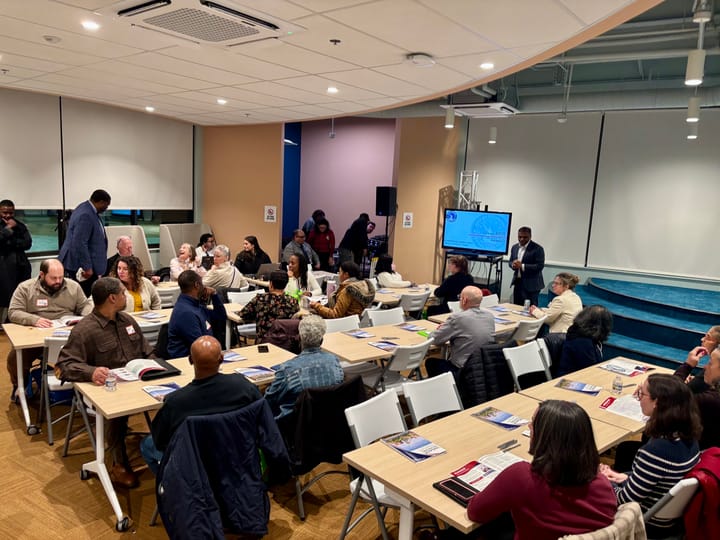
Audit finds ‘significant weaknesses’ with Richmond’s government purchasing cards
An internal audit of the city of Richmond’s purchasing card system found at least $5 million in “questionable expenses” and a lackadaisical approval and oversight system that made it difficult for the city to track and control what employees were buying with their city-issued cards.
A report released Tuesday by Auditor Riad Ali said the “significant weaknesses” in city controls over the purchasing cards (known as P-cards for short) led the auditor’s office to refer millions in questionable spending to the city’s inspector general office, which has more power to investigate wrongdoing such as waste, fraud or abuse.
“The city’s P-Card program and usage lacked effective internal controls to ensure the proper use of public funds,” the report said. “The city’s transaction approval structure did not consistently function as an effective safeguard to ensure taxpayers’ dollars were spent appropriately.”
The purchasing card program, administered by the city’s Department of Procurement Services, was implemented in 2018 under former Mayor Levar Stoney as a way to make government more efficient and streamline the process of making small purchases. But it’s becoming increasingly clear the city made it too easy for officials to spend public funds without adequate monitoring of what expenditures were appropriate.
In April, Mayor Danny Avula announced he was initiating a “reset” of the program that would reduce the number of cards in circulation by 80% and limit their use to critical needs. That announcement came as the Richmond Times-Dispatch reported that a former city fire employee had used his city-issued card to spend almost $840,000 on purchase orders from a company registered to his own home in Henrico County.
The audit focused on more than $20.7 million in purchases made on the cards between July 2022 and May 2024. As of last June, there were 348 active cards spread across 38 departments.
Though the audit report didn’t go into great detail about the $5 million in questionable expenditures, it offered a few examples of the type of issues the office found, including:
- A Department of Public Utilities official spending $1,423 on a catered lunch for 14 employees who attended a training session. The food order was for 40 people, according to the report, and included “a chef and servers.”
- A $480 purchase of a business suit for an employee to wear “during a court appearance.” When questioned about the expense, the employee who approved said it was allowable, but was unable to provide any documentation or policy supporting the validity of the purchase.
- A former employee spending $2,163 on airline tickets to attend a work-related summit, even though the summit host reimbursed attendees for airfare. The employee did not initially reimburse the city for the cost, but told auditors that was an “oversight” and provided reimbursement after being asked about it.
- At least $26,000 in overpayments to a contractor caused by a failure to check invoices against the pricing and payment terms of the contract.
- The “extensive use” of third-party payment platforms like PayPal, Venmo and Square even those methods left little to no record of what was being bought and who was being paid. Some vendors were listed as “My Business,” Square’s default setting, and a $1,000 payment to an individual gave no information other than their name.
- Sharing of purchasing cards between multiple employees despite city policy dictating that cards were supposed to be assigned to a clearly identified person.
- Delayed deactivation of cards when employees left city government. In some cases, charges on the cards continued after the employee the card had been assigned to was gone.
- Weak processes for reviewing purchases to ensure they were in compliance with city guidelines. A single DPS employee was responsible for final approvals for more than 40,000 transactions, which auditors characterized as an overly high workload that limited the city’s ability to thoroughly review each expense.
- Purchase approvers being asked to sign off on expenditures made by their supervisors or in other departments, which reduced “effective oversight.”
The audit report listed 16 recommendations for how the purchasing card program could be strengthened with tighter policies and controls.
“While the city has taken initial corrective steps, including a full program reset, additional reforms are needed,” the report says. “These should include modernizing and enforcing policies, implementing risk-based oversight, improving system settings, and tailoring training by user role. The city should also expand its use of data analytics to identify outliers, require timely documentation, and define consequences for repeated noncompliance.”
When Avula announced the purchasing card reset in April, he indicated it would take at least 60-90 days to overhaul and relaunch the system.
“P-cards are a best practice, but Richmond’s p-card program needs a reset,” the mayor said in a news release at the time. “So, today, I’m turning off the vast majority of p-cards and placing new purchasing restrictions on the remaining cards. We’ll take the next few months to reassess, retool, and reboot the program in an effective way that really serves Richmonders.”
Last week, the Avula administration announced the launch of a new website allowing residents to track the progress of the purchasing card overhaul.
City officials said the “progress tracker” for the initiative was a way for residents to see exactly how a problem was being fixed.
“The new p-card program will have rigorous guardrails, comprehensive user training, and clear lines of accountability,” Procurement Services Director Rene Almaraz said in a news release. “This tracker is one more layer of transparency that we are committed to providing as we work to identify and fix what is not best serving the people of Richmond.”
Contact Reporter Graham Moomaw at gmoomaw@richmonder.org






